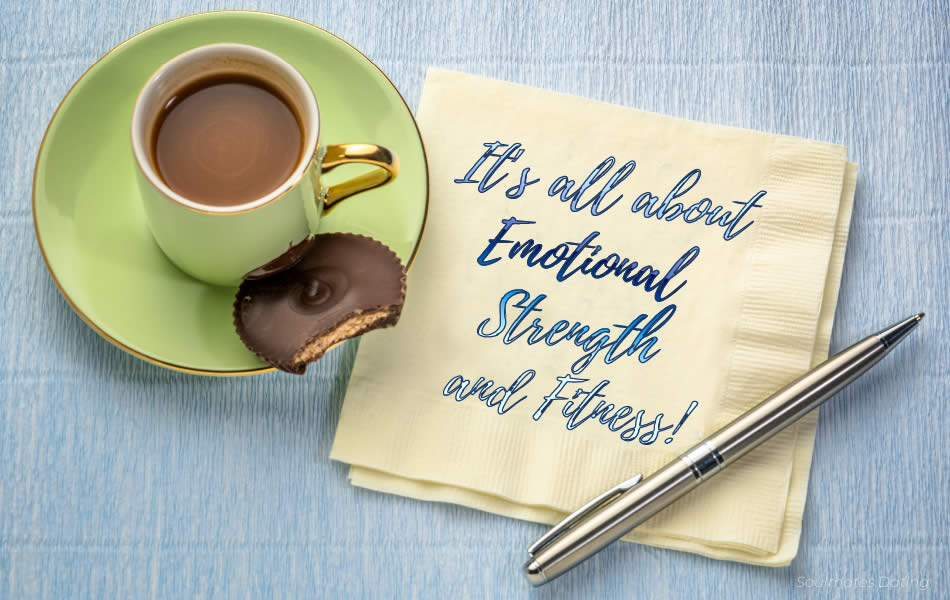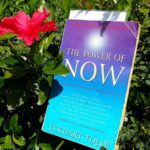Do you?
Emotional wellbeing is 2022’s golden ticket.Broken down into its two key components — Emotional Strength and Fitness — it is the cornerstone of resilience.
It enables us to stand steady in the face of life’s curve (and wrecking) balls. It helps us step up and into life’s challenges, instead of backing away from them.
It helps us to deploy strategies to cope with stress when we need them. And it allows us to understand our hearts and minds and, therefore, to fully engage in the business of living.
Emotional wellbeing is a work in progress. I’m not sure it’s ever possible to lie back in the great deckchair of the human condition and say you have your emotional life “sorted”.
It’d be a risky claim — because we all have our not-so-proud moments, times when our equilibrium deserts us. When we — ahem — blow out. Lose it. Cry. Scream. Rage. Freak out. If not on the outside, then internally.
But still. Optimum emotional wellbeing is an aspirational aim.
Here’s how the best in the game do it.
Two Things the Emotionally Strongest Do Brilliantly
In therapeutic circles, Distress Tolerance skills tend to focus on surviving emotional crises. But when you take it out of the therapy room and adapt the skills slightly for the world we live in now, it has benefits for all. When we get into emotionally challenging situations, our reactions can escalate the problem and/or make it worse. Distress tolerance skills enable us to be with, rather than react to, difficult emotions. They also help us to see and accept the reality of situations that can’t be changed.
Emotionally strong people can tolerate high levels of distress. It can seem as though they’re “just built that way” but it’s often been developed down in the trenches of their own lives. They’ve coped because they’ve had to — and they’ve seen that they can.
Emotionally strong people get shaken by stress like everyone. But they are not undone or shut down. In the clutch of intense or difficult feelings, they’re still able to think clearly and function well.
How to build your tolerance of distress
When we’re emotionally overwhelmed we often turn to familiar strategies we think will make us feel better but are (often) harmful. Think fingernail biting, skin picking, hair plucking, self-harm, substance/alcohol abuse, porn, binge or restrictive eating.
Everyone needs at least one healthy way of self-soothing or just making yourself feel better. Journaling. Making videos. Drawing. Crafting. Music. Warm baths. Games. Puzzles. A walk in nature. Gardening. Tinkering in the shed. Pets. Exercise (but not extreme). Most people can name one of these — but the challenge is remembering to do it when you need it. To identify one thing as your go-to. Then practice. Not to be perfect — just better.
The ability to manage (or regulate) your emotions will make you feel more grounded, more steady, and more content with who you are. Bonus! It will help your relationships (hugely) — work, friendships, and intimate partnerships — and it will absolutely open the door to being more successful in life.
Emotional regulation is not about ruling your feelings with an iron fist, nor is it about stifling them; it’s about being open to experiencing many emotions, allowing yourself to feel them, and managing them with understanding and empathy.
While some people are good at this, NO-ONE is perfect. We all have a tendency when under pressure, to think and act in ways that make things worse, or we end up regretting. So being able to manage yourself is an important work-on. With time, it can be life-changing.
How to build your emotional regulation skills
When we don’t feel great we often just stay with the absolute basics. I feel bad. I’m miserable. I’m down/unhappy. I’m depressed. Then we let those feelings rule over us.
Building emotional regulation skills demands that we develop an understanding and a language for a range of feelings. To unpack what you are feeling by naming the emotion that best describes how you feel. Be precise. I’m bored. I’m lonely. I’m resentful. I’m envious. I’m scared. I’m lost. Not just negative emotions, either. Being able to identify positive emotions is just as important because they lift us (and keep us) up. I’m cheerful. I’m excited. I’m playful. I’m hopeful. Train yourself to name those too.
As you unpack and name your feelings you will gain a better understanding of yourself, you’ll being to see patterns and, best of all, those emotions will lose the power to hurt you.
Why would anyone say no to that?
![]()

Karen Nimmo
Author
Clinical psychologist, writer. Editor of On the Couch: Top writer in Inspiration, Love, Self Improvement, Mental Health, Psychology, Relationships, Life, Life Lessons, Entrepreneurship
Article credit and social network links below…


























